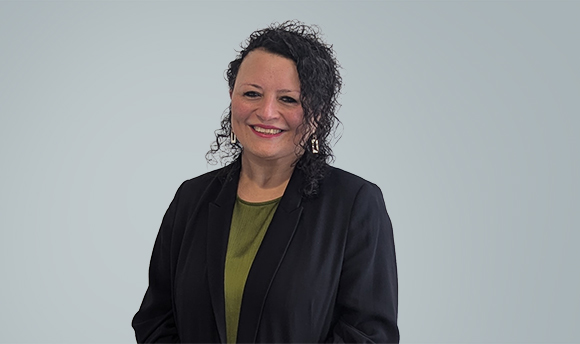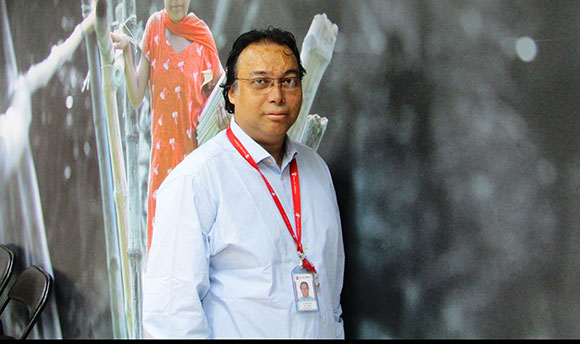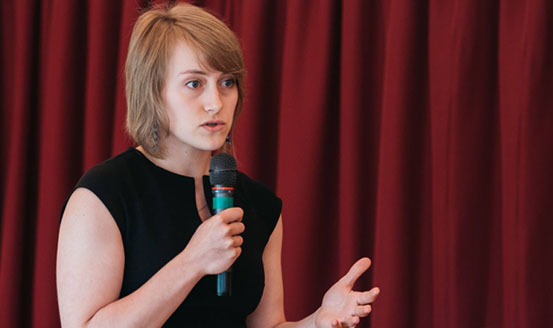Global Health - MSc
Do you want to contribute to making a healthier, happier world? Are you passionate about social justice or looking for a qualification designed to enable you to work at senior levels in health policy and practice, addressing health challenges wherever they occur? This MSc in Global Health could be the perfect stepping-stone for your career.
Global health is increasingly framed as a major driver of development, international co-operation and diplomacy. As a field, it emphasises thinking about health challenges, and recognising that health inequities exist everywhere, from local communities to international settings. These challenges require collaborative, evidence-based solutions. This makes global health an intellectually rigorous field that is also vital for addressing some of the world's most pressing challenges. This MSc in Global Health course will offer you a thorough grounding in this multidisciplinary field, with subsequent opportunities for specialisation.
The course prepares you for careers in enhancing health and wellbeing across diverse settings, from local communities to international contexts. Graduates go on to work in a wide range of organisations from local health departments and NGOs to international agencies like the World Health Organization—addressing health challenges wherever they occur.
The course can be studied full time or part time with start dates in September and January.
Why QMU?
- Unique academic institution: The Institute for Global Health and Development (IGHD) at QMU offers a range of postgraduate courses designed for those who wish to work in health policy and practice, addressing health inequities from local communities to global settings. Our researchers are at the forefront of health policy and systems research, and we are known for informing and influencing policy and practice in low- and middle-income countries and fragile settings.
- Transform careers and communities: Our courses put a strong focus on the social aspects of health and on health systems strengthening from a community-based perspective. They will equip you to work on improving health outcomes for communities facing significant challenges internationally, nationally, and locally. You will develop a strong understanding of current global health and development issues and challenges, and you will gain the tools you need to forge positive change.
- Access to expertise and industry connections: You will learn from leading experts in global health and build lasting professional relationships. At IGHD we work directly with ministries of health, international and national organisations and local communities to develop real solutions to health and development problems. Our partners include:
- Health Systems Global
- Mental Health and Psychosocial Support Network
- Scottish International Development Alliance
- Development Studies Association
- Scottish Government
- Scottish Refugee Council
- At QMU we hosted the NIHR Research Unit on Health in Situations of Fragility (RUHF) and we are part of the UK FCDO-funded project ReBUILD for Resilience.
- A commitment to equity: Our work at IGHD addresses the health and wellbeing of those in greatest need, wherever they may be, from vulnerable populations in Scotland to those marginalised groups in low- and middle-income countries.
- Expertise that matters: Our teaching and research expertise spans health financing, support to fragile and conflict-affected settings, climate change, and priority health issues including mental health, chronic disease, sexual and reproductive health and rights, refugee integration, and child protection. Our teaching team brings real-world case studies and insights from their field experience across diverse contexts including Europe, Latin America, the Middle East, South Asia and Sub-Saharan Africa.
Interview with MSc Global Health student, Nkwain Carlson
On the MSc in Global Health course you will study a multidisciplinary approach to the social, political, and economic factors influencing health and development, looking at local, national, and international contexts. You will work on integrating theory and practice, developing critical thinking skills and widening your perspective on current and historical global health challenges and development issues.
You will be able to evaluate the importance of health equity and social justice in health, developing critical thinking skills and widening your perspective on current and historical global health issues including health systems, disease prevention, health promotion, and addressing health inequities from local communities to international contexts.
Structure and exit awards
You can opt to study for the full MSc (180 credits), a PgDip (120 credits) or a PgCert (60 credits). Please note all students will initially enrol onto the MSc course.
You can also register as an associate student to complete a single module for Continuing Professional Development (CPD). On completion of a single module, you may wish to complete further modules and progress your studies to a named award. A variety of modules can be studied for CPD. Contact IGHD for more information.
Teaching, learning and assessment
Our teaching is guided by case-based learning, complemented with lectures, seminars, tutorials, simulation exercises, and projects. Assessment is continuous and incorporates essays, action plans, projects, and presentations. For your dissertation project, you can choose to do a desk-based study involving a literature review or conduct primary data collection in collaboration with national or international organisations working in global health and development.
Teaching hours and attendance
Your exact attendance requirements at QMU will depend on the module you are studying and whether you are studying full-time or part-time. In addition, for each module students spend approximately 10-12 hours each week preparing class work independently and with colleagues, including readings and exercises available on dedicated web-based learning platforms.
Class sizes
We expect approximately 10-15 students to enrol for this course each year.
Teaching staff
You can read more about the teaching staff on this course at the bottom of this page. Please note that teaching staff is subject to change.
PgCert
For a PgCert you will complete 60 credits from the available taught modules, which include:
- Key Concepts in Health and Development (20 credits)
Key Methods in Health and Development (20 credits) - Key Practice in Health and Development (20 credits)
- Gender and Sexual and Reproductive Health (20 credits)
- Gender and Sexual and Health Rights in Action (20 credits)
- Health Systems in Fragile Settings (20 credits)
- Health Systems and Policy (20 credits)
- Community-Based Mental Health and Psychosocial Support (20 credits)
- Project Design and Management (20 credits)
- Introduction to Biostatistics and Epidemiology (20 credits)
- Health Promotion and Disease Prevention (20 credits)
- Applied Approaches to Climate and Health (20 credits)
PgDip
For a PgDip, you will complete the following three modules:
- Key Concepts in Health and Development (20 credits): In this module, you will be introduced to key concepts in health and development, providing a strong conceptual foundation to the field. You will define and critically engage with fundamental principles, theories, and approaches, enabling you to assess health and development from both global and local perspectives. The module explores essential metrics and measures, equipping you to analyse health outcomes and disparities.
- Key Methods in Health and Development (20 credits): In this module, you will develop a strong foundation in research methodologies essential for global health and development. You will explore how knowledge and evidence are produced, validated, and applied, gaining insight into the strengths and limitations of various research approaches. By comparing diverse epistemological and methodological frameworks, you will critically assess their theoretical foundations, ethical considerations, and practical applications
- Key Practice in Health and Development (20 credits): You will explore the practical and analytical approaches needed to assess and improve population health, health systems, and social and economic development in diverse contexts. You will learn how to apply system-level thinking to address health challenges from local to global levels, and integrate principles of inclusivity, equity, and sustainability into systems, policies, and programmes. Through critical engagement with evidence, you will assess systems, strategies, and interventions designed to tackle key health and development issues across different settings.
- Plus, 60 credits of additional taught modules from the following list:
- Health systems in fragile settings (20 credits)
- Health Systems and Policy (20 credits)
- Gender and Sexual and Reproductive Health (20 credits)
- Gender and Sexual Health Rights in Action (20 credits)
- Community-Based Mental Health and Psychosocial Support (20 credits)
- Project Design and Management (20 credits)
- Introduction to Biostatistics and Epidemiology (20 credits)
- Health Promotion and Disease Prevention (20 credits)
- Applied Approaches to Climate and Health (20 credits)
MSc
For the award of an MSc you will also complete a Dissertation (60 credits) involving desk study or fieldwork on an approved topic related to global health.
This course could be a major turning point in your career. You will be ideally equipped for employment as a global health practitioner, senior health manager or policy maker working in, or advising, a developing country or one in economic transition.
Entry requirements
A UK honours degree or equivalent from a relevant subject area (arts, humanities, health or social sciences). Students without an honours degree may be considered if they have other relevant qualifications and/or appropriate work experience.
International students: You will be required to provide evidence of English language competence at no less than IELTS 6.5 with no individual component score less than 6.0.
Disability/health conditions
If you have a disability, long-term physical or mental health condition, or learning disability, it should not stand in the way of your studying at QMU. However, if you are not sure whether your disability might be a barrier in your studies or in relation to the professional standards, please contact the disability service who will be able to have a conversation with you about reasonable adjustments and supports available to you.
Applying for this course
For more information on applying, or to apply for this course, please follow the links in the 'Start your application' box at the top right of this page.
Application deadline
Home students: August for a September 2026 start and December for a January 2027 start.
International students: End of June for a September 2026 start and November for a January 2027 start.
Contact Admissions or contact IGHD for more information.
International applicants may apply for a competitive Commonwealth Scholarship.
- The delivery of this course is subject to the terms and conditions set out in our 2026/27 Entry - Terms and Conditions (Postgraduate).
- The information on this page is correct at the time of posting (October 2025) but is subject to change. In the event that modules change, QMU will seek to use reasonable endeavours to ensure that there is no detrimental impact on students. Please keep an eye on this page for updates.
Interview with MSc Global Health student, Casadra Otto Varhaug
Become your best you: study at QMU
Course Overview
Engage with the Team
A Student Story (see bottom of page for more)
“The MSc Global Health is a much needed degree for any professional who wants to build a career in the health development sector, both in and beyond their own country. I was drawn to the key aspect of this course, which focuses on health systems management globally, particularly in fragile and post-conflict areas."
Read my storyJoin us at one of our Postgraduate Open Events
Find out about online and in-person opportunities to meet with us to find out more about our postgraduate courses and study at QMU.
Postgraduate Open Events - More Info and Bookings














